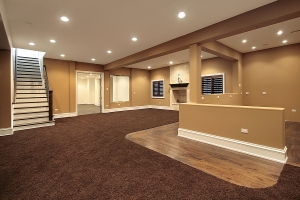HOW TO SPOT A BASEMENT LEAK
 Finding water in the basement is never a pleasant experience, especially if it has been there for a while. This is why it is important to seek basement waterproofing serving Baltimore as soon as you discover a problem. A hidden basement leak that goes unaddressed can lead to a variety of complications, including poor indoor air quality, water damage, and mold growth. Read on if you are interested in finding out how you can detect a basement leak.
Finding water in the basement is never a pleasant experience, especially if it has been there for a while. This is why it is important to seek basement waterproofing serving Baltimore as soon as you discover a problem. A hidden basement leak that goes unaddressed can lead to a variety of complications, including poor indoor air quality, water damage, and mold growth. Read on if you are interested in finding out how you can detect a basement leak.
Walls and Wallpaper
When water seeps through your foundation and infiltrates the interior of your home, it tends to leave a few telltale signs that indicate its presence. You can first look to your walls. If you have a wallpapered basement and experience a leak, you will likely notice bubbling and other distortions in the wallpaper. The same applies for paint; water that seeps through the foundation will work its way between the walls and the paint, and the paint will chip off of the walls. In more severe cases, you may even spot a crack in one of your basement walls. This occurs because the infiltrating water moves the soil behind your foundation, which causes problems regarding structural integrity.
Ceilings and Flooring
Warped, cracked, and spongy floors are prevalent signs of water damage, but they tend to be observed most commonly on the first or second floor of the home. However, your basement floor can also offer valuable insight regarding the presence of moisture. If you have laid down wooden floors in your basement, you may notice some warping. You may also notice wood rot. Whether it is your wooden floors or your wooden molding that surrounds the perimeter of your basement floor, a basement leak can break down your wood over time. Stains on your basement ceiling are also common signs of a leak.
Mold Growth
If you notice any mold growing in your basement, it is wise to call a professional immediately. Mold can be harmful to your indoor air quality, and certain types of mold can be dangerous when inhaled or contacted by humans. Mold can be especially hazardous to those with allergies or respiratory problems.
